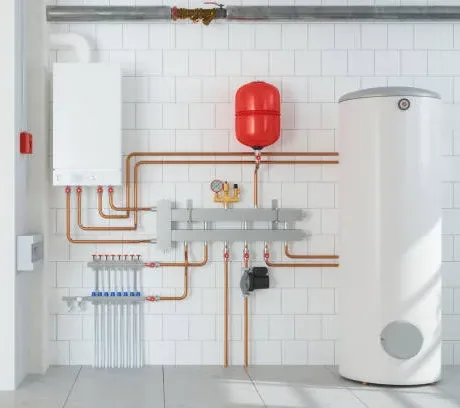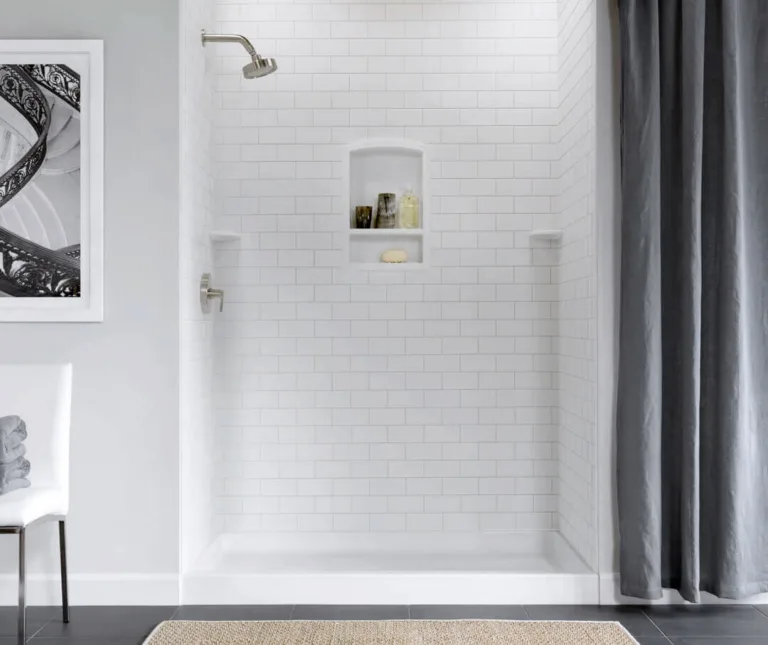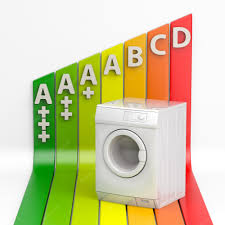Best Water Heater Options for Your Home – 2025
Choose the Best Water Heater Options for Your Home. Amidst household expenses, your water heater costs stand out, constituting approximately 20% of your total expenditures. With the recent surge in home-bound activities due to the epidemic, your consumption and associated expenses have inevitably risen. Yet, despite their significant impact on your budget, water heaters often remain overlooked until they malfunction, leaving you without hot water and potentially causing extensive damage such as a flooded basement.
If you’re considering proactively replacing your aging water heater, it’s worth exploring the available improved options, thanks to US regulations promoting greater energy efficiency. Among these options, tankless or on-demand water heaters stand out for their superior energy efficiency. Even traditional storage tank water heaters have evolved to operate more efficiently in compliance with modern standards.
While many homeowners opt for a like-for-like replacement with a conventional electric or gas water heater, it’s essential to consider the long-term benefits of switching to tankless technology. Although the initial investment may be higher, particularly due to potential electrical and plumbing adjustments, the financial viability of installing a tankless water heater becomes more apparent, especially when building a new home or renovating an existing one.
Water Heater Testing Process
A large selection of whole-house tankless water heaters, both gas and electric, from reputable manufacturers including Bosch, Navien, Noritz, Rheem, Rinnai, Tempra, and Trutankless, were recently examined by Consumer Reports. Their efficacy compared with that of Rheem’s conventional tanked heaters, including both gas and electric models, as well as an electric heat pump water heater a Rheem hybrid in terms of performance.
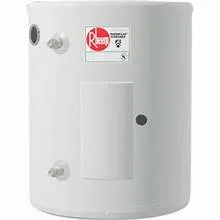
Using an industry-standard “heavy use” test scenario, we evaluated the performance of gas and electric tankless water heaters against their conventional tank counterparts. This test involved a high draw pattern equivalent to utilizing 84 gallons of water per day, akin to multiple showers, dishwasher runs, laundry cycles, and frequent faucet usage. Gas models were tested with an inlet temperature of 58°F, while electric models were tested with an inlet temperature of 74°F (plus or minus 2°F), targeting an outlet temperature of 120°F.
Due to the closely matched performance of tankless water heaters, we averaged the results for each batch of gas and electric and compared them with the performance of conventional gas and electric storage tanks, as well as the electric heat pump model. Consequently, we did not assign model-level ratings, unlike other major appliances.
We assessed the payback time for both new installations and replacements based on factors such as purchase price, annual energy cost, and estimated installation expenses. While the payback time for a tankless unit replacing an existing storage tank was longer, it was more reasonable for new construction projects.
Enhancing Your Water Heater Selection Process
Optimal Tank Capacity
Tank water heaters can have capacities ranging from 40 to 55 gallons or even more, so it’s important to keep that in mind when thinking about them. This difference is dependent upon variables including your home’s size and water use habits. For example, a family of four would use more than 100 gallons of hot water every day for bathing, laundry, and dishwashing. It’s important to realize, though, that you don’t always need a 100-gallon storage tank.
The Importance of First-Hour Rating
The first-hour rating is an important consideration when selecting a storage tank water heater. This rating shows how much hot water the heater can produce in the first hour, assuming that the tank is full. It is advised that you utilize resources such as the calculator on the Energy Saver website or consult the information on the Energy Guide label to make sure you choose the correct heater for your house.
Efficiency Upgrades and Technological Advancements
Recent revisions to efficiency requirements have resulted in significant improvements in water heater efficiency. Models under 55 gallons now boast a 4% efficiency increase, while those over 55 gallons can see efficiency gains ranging from 25% to 50%, depending on the technology employed, such as condensing or heat pump systems.
Consider Size Changes
When replacing an outdated water heater, it’s crucial to consider potential size changes. Newer models may have increased dimensions due to improved insulation and efficiency features. Therefore, it’s essential to ensure that the new water heater will fit comfortably in the allocated space.
Tankless Water Heaters Gallons-Per-Minute Rating
For tankless water heaters, which offer limited water storage, it’s important to take into account the gallons-per-minute rating. This rating indicates the volume of hot water the heater can produce within a specific timeframe. For larger homes with multiple bathrooms and high water demand, it’s advisable to choose a heater with a higher gallons per minute rating. For instance, a typical shower consumes about 2.5 gallons per minute.
Types of Water Heaters
The choice of water heater depends on your hot water consumption and preferred heating method—gas or electric. There are several solutions available, some of which, though at higher initial prices, promise to dramatically cut energy expenses when compared to basic storage devices.
Storage Tank Water Heater:
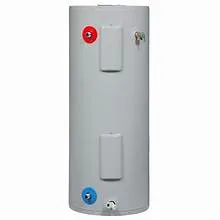
The most popular kind has an insulated tank that holds warm water until it’s required. These heaters come in both natural gas and electric versions, and they have a temperature and pressure release valve.
Tankless Water Heater or Instant Water Heater:
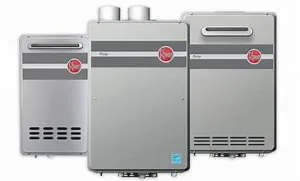
These heaters use heating coils to warm water as needed, offering energy efficiency but limited hot water flow per minute, typically around 3.5 gallons.
Heat Pump (Hybrid) Water Heater:
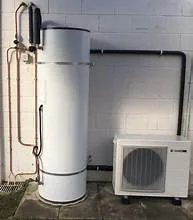
Utilizing heat from the air to warm water, these models are highly energy-efficient, though less effective in very cold environments.
Solar Water Heater:
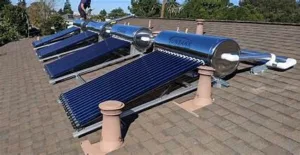
Roof-mounted cells harness solar heat, transferring it to a closed-loop system that heats water. While offering significant savings in sunny climates, their efficiency diminishes in colder or cloudy conditions.
Condensing Water Heater:
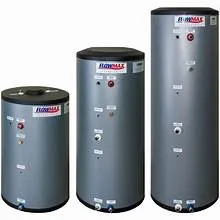
Ideal for gas heating and capacities exceeding 55 gallons, these models capture exhaust gases to enhance efficiency.
Important Features:
Many important aspects may significantly improve the performance and lifespan of a water heater when purchasing one. First, think about the warranty duration. Choosing a model with a longer warranty typically between three and twelve years can reassure you and denote superior quality. These types frequently include bigger burners or components, which heat water more quickly, and thicker insulation, which reduces heat loss over time. To guarantee long-lasting durability, it is therefore wise to select a water heater with the longest warranty offered.
Anti Scale Devices:
Additionally, anti-scale devices are worth considering to mitigate mineral scale buildup within the tank. While some brands promote specialized features aimed at reducing scale accumulation by swirling the water, it’s not necessary to invest in these high-end options. Instead, focus on selecting a water heater with a long-time warranty, which often includes a longer or thicker heating element, effectively addressing scale-related concerns.
High-Quality Valves:
When evaluating drain valves, prioritize durability by opting for brass valves over plastic alternatives. Brass drain valves, typically situated near the base of the water heater, offer superior longevity and reliability, ensuring efficient drainage when needed.
Glass Lined Tanks:
Additionally, tanks with glass lining are made to reduce corrosion, which lengthens the water heater’s lifespan. This characteristic is especially important in places where there is a high mineral content or hard water, as corrosion can seriously affect performance.
Digital Display Function:
Lastly, digital displays provide valuable functionality, allowing users to monitor levels and customize operations for optimal efficiency. Convenient features like vacation mode, which uses solely the heat pump for greater energy efficiency while the user is away, are available in certain sophisticated versions, such as electric/heat pump hybrid water heaters. To make monitoring and maintenance easier, solar water heaters frequently have informative displays that indicate pressure readings, tank and collector temperatures, and other crucial information.
Conclusion: Best Water Heater Options for Your Home
Considering these features extended warranty, anti-scale devices, durable drain valves, glass lined tanks, and digital displays will help you make an informed decision when selecting a water heater that offers longevity, efficiency, and reliable performance.


